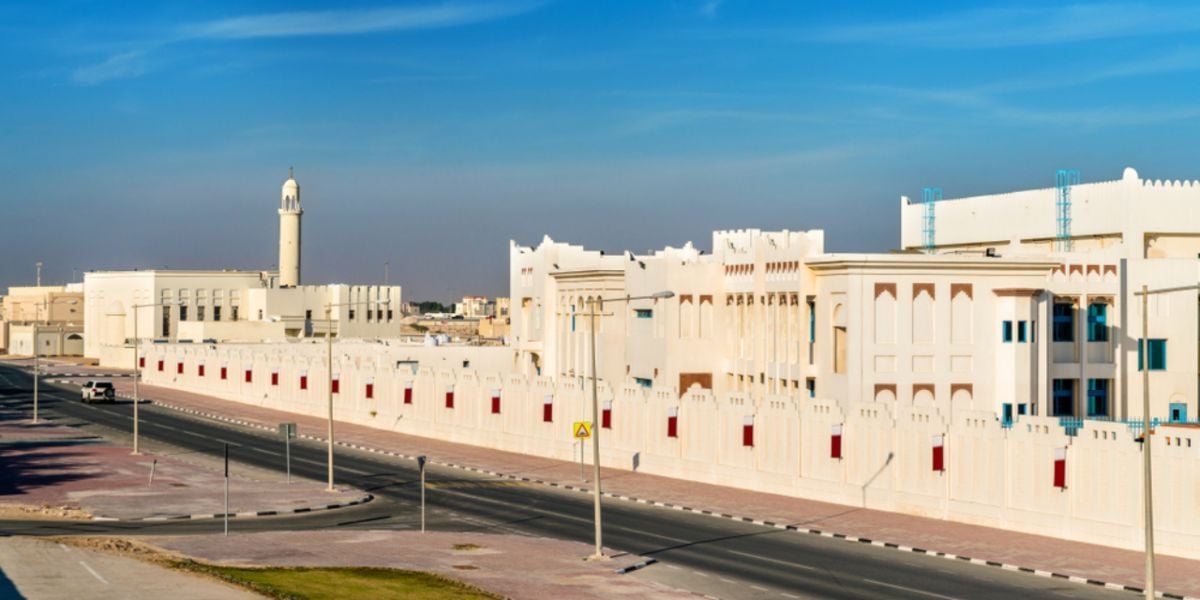
Higher education in Qatar is highly valued and supported by the government. When the formal university began in 1973, it opened the doors to many international universities to build their satellite schools in the city. If you're an international student moving to Doha, here's what you need to know about the country's higher education system and the condition to be met for enrolling in a university.
Universities in Doha
Doha is home to 8 top international universities that are committed to providing high-quality education to students looking to obtain a bachelor's degree and continue post-graduate studies. These are:
- Carnegie Mellon University in Qatar (CMU-Q)
- Georgetown University School of Foreign Service in Qatar (GU SFS-Q)
- Northwestern University in Qatar (NU-Q)
- Qatar Faculty of Islamic Studies (QFIS)
- Texas A&M University at Qatar (TAMUQ)
- University College London Qatar (UCL-Q)
- Virginia Commonwealth University in Qatar (VCU-Q)
- Weil Cornell Medical College in Qatar (WCMCQ)
Even though Qatar University boasts the largest number of Qatari students, the above-mentioned schools have been proudly declaring successful graduates since 2002. WCMCQ started as the very first international university in the country. Their demographics show that 60% of students coming from different parts of the world successfully completed their studies in such universities. Qatar Education City became a benchmark for all top-ranking universities in Doha. It started with a single school over the decades until the government decided to build up the rest of the university branches within the vicinity. The place is warm and student-friendly as it provides major facilities, astounding architecture, hospitals, research centers, a library, soccer fields and stadiums and parks.
Studying in Doha is not as complicated as you thought. However, cost-wise, it is not as cheap as in other Gulf States. It is quite challenging for some students to pursue studies alone in Qatar, especially since the chances that they find a part-time job to support themselves financially are very slim. Usually, university students in Qatar come from families earning salaries higher than the average wage. However, this does not prevent students from qualifying to enter the university or from continuing their studies.
There are also a few training institutions in Doha that offer short courses at reasonable prices.
Below are a few examples:
- APTECH Qatar
- Qatar Skills Academy
- Galaxy Academy
- The Swiss International School of Qatar
- American School of Doha
- Qatar Energy and Environment Research Institute
- Arab Center for Research and Policy Studies
Programs offered by Doha universities
Studying in Doha offers a unique opportunity to pursue high-quality education in a vibrant and culturally diverse environment. The city is home to several renowned universities and educational institutions that attract students from around the world.
Universities in Doha can offer the finest courses a student wants to enroll in. Such programs are standardized by the Ministry of Education and Higher Education and the Qatar Supreme Education Council based on the global education curriculum. Recently, Doha universities proudly declared an increase in the number of graduates from research, medicine, engineering and technology, information and technology, politics, economics, finance, communication and Islamic studies - which shows the quality of the local education system.
Here are some key points to consider if you are interested in studying in Doha:
University programs
Doha offers a range of undergraduate and postgraduate programs across various disciplines, including business, engineering, arts and humanities, sciences, and more. Research universities such as Qatar University, Hamad Bin Khalifa University, and Texas A&M University at Qatar are known for their academic excellence.
International campuses
Doha hosts branch campuses of prestigious international universities, providing students with an opportunity to earn a degree from globally recognized institutions without leaving the city. Examples include Georgetown University, Northwestern University, and Carnegie Mellon University in Qatar.
Language requirements
Depending on the program and university, language requirements may vary. While many universities offer programs in English, some may require proficiency in Arabic or offer language courses to support non-Arabic speakers.
Tuition fees
Qatar University offers the most flexible programs for students who have financial constraints. They have an estimated minimum tuition fee of 18,000 QR per semester. Other universities are likely to have 20,000 QR upwards, as well as additional fees for students looking a acquire a certain degree.
Enrolment conditions in Doha universities
Every university in Doha requires the filling of an application form before enrollment. Undergraduate students are required to submit their competencies relating to the degree they wish to acquire. For students coming from private and international secondary schools, a GPA rank of 2.00 (C) is required upon acceptance at the university, with at least passing grades of the following subjects: biology, physics, chemistry, algebra, trigonometry, geometry, and English language.
Other graduates from international secondary schools are required to have at least a grade of D in IGSE or O-level. Students coming from other countries need to submit result transcripts from their previous universities. Scholarships are sometimes offered to postgraduate students depending on the support and agreement of the university they are currently studying at.
Student visa requirements in Qatar
If you are an international student in Qatar, it's important that you familiarize yourself with the student visa requirements and procedures. Contact the university's international student office for guidance and support in the visa application process.
To study in Qatar, you will typically need to obtain a student visa. Here are the general steps and requirements for obtaining a student visa in Qatar:
- Acceptance from a Qatari Educational Institution: First, you need to secure admission to a recognized educational institution in Qatar. This could be a university, college, or school. You will need to submit the required application documents and meet the institution's admission criteria.
- Receive a Letter of Offer: Once accepted, you will receive an offer letter or acceptance letter from the educational institution. This letter is a crucial document for your student visa application.
- Sponsorship: In Qatar, a student visa requires sponsorship from a Qatari citizen or a resident. The educational institution you have been admitted to can often act as your sponsor. They will guide you through the sponsorship process and provide the necessary documents to support your visa application.
- Health requirements: You may be required to undergo a medical examination at an approved medical center in Qatar or your home country. This examination typically includes a general health check-up and screening for specific diseases.
- Financial documentation: You will need to provide proof of financial capability to cover your tuition fees, living expenses, and other costs during your stay in Qatar. This may include bank statements, sponsorship letters, or scholarship letters.
- Visa application: Once you have all the necessary documents, you can proceed with the visa application process. The application is typically submitted to the Ministry of Interior in Qatar. The educational institution or your sponsor can assist you with the application procedure and requirements.
- Visa fees: There are usually fees associated with the student visa application process. The fees may vary, so it's important to check the latest fee structure and payment methods.
- Processing time: The processing time for a student visa in Qatar can vary. It's advisable to apply well in advance to allow sufficient time for processing and to avoid any delays.
- Travel arrangements: Once your student visa is approved, you can make your travel arrangements to Qatar. Ensure that you have a valid passport and any other required travel documents.
- Residence permit: After arriving in Qatar, you will need to complete additional procedures to obtain a residence permit or ID card. This process usually involves undergoing biometric data collection, providing additional documentation, and paying the necessary fees. The educational institution or your sponsor can guide you through this process.
It's important to note that the specific requirements and procedures for obtaining a student visa may vary based on the educational institution, nationality, and other factors. It's recommended to contact the educational institution directly or consult with the Qatari embassy or consulate in your home country for the most up-to-date and accurate information regarding student visa requirements and procedures.
It's important to research and evaluate different universities and programs based on your academic interests, career goals, and personal preferences. Review admission requirements, faculty profiles, curriculum, and university rankings to make an informed decision. Reach out to university admissions offices or attend education fairs to gather more information and seek guidance on the application process.
Scholarships and financial aid in Qatar
Scholarships and financial aid opportunities are available in Qatar to support students pursuing higher education. These programs aim to make education more accessible and affordable for both local and international students. Here are some key points to consider regarding scholarships and financial aid in Qatar:
- Qatar Government Scholarships: The Qatari government offers scholarships to outstanding students from Qatar and other countries. These scholarships cover tuition fees, accommodation, travel expenses, and a monthly stipend. The scholarships are typically awarded based on academic merit and may have specific eligibility criteria.
- Qatar Foundation Scholarships: The Qatar Foundation for Education, Science, and Community Development provides scholarships to students pursuing undergraduate and graduate programs at its various institutions, including Qatar University, Hamad Bin Khalifa University, and Education City universities. These scholarships may cover tuition fees, living expenses, and other related costs.
- University Scholarships: Many universities in Qatar offer their own scholarships and financial aid programs to attract and support talented students. These scholarships may be based on academic achievement, leadership potential, or specific criteria set by the university. It's advisable to check with individual universities for the scholarships they offer.
- External Scholarships: Students can also explore external scholarship opportunities from organizations, foundations, and government bodies outside of Qatar. These scholarships may be specific to a particular field of study, nationality, or other criteria. Online scholarship databases and platforms can help in identifying such opportunities.
- Research Grants: Research-focused institutions and organizations in Qatar provide research grants and funding for students conducting research projects or pursuing advanced degrees. These grants may cover research expenses, conference participation, and stipends for researchers.
- Financial Aid Programs: Some universities and institutions in Qatar offer financial aid programs to support students who demonstrate financial need. These programs may provide partial or full tuition fee waivers, reduced fees, or flexible payment plans to alleviate financial burdens.
- Internship and work-study opportunities: Students in Qatar can explore internship and work-study opportunities within their universities or through external organizations. These opportunities can provide financial support while gaining practical experience in their field of study.
- Government loans: In certain cases, international students in Qatar may be eligible for government loans or financial assistance programs offered by their home countries to fund their higher education in Qatar. It's important to research and inquire about such options through relevant government bodies or educational authorities.
Each scholarship or financial aid program will have its own application process and requirements. It typically involves submitting an application form, academic transcripts, recommendation letters, a statement of purpose, and sometimes an interview or essay. Carefully review the eligibility criteria and application deadlines for each scholarship.
Scholarships and financial aid opportunities often have specific application deadlines, which can vary depending on the program and institution. It's crucial to start researching and planning early to ensure you meet all the requirements and submit your applications on time.
Remember to thoroughly research and carefully review the terms and conditions of any scholarship or financial aid program you consider. Contact the scholarship providers or the financial aid offices at universities for more information and guidance on the application process.
Student life in Doha
Cultural experiences
Doha offers a rich cultural experience with its museums, art galleries, cultural festivals, and sporting events. Engaging in extracurricular activities and joining student clubs and organizations can enhance your overall experience and help you develop a well-rounded skill set.
Internship and job opportunities
Doha's dynamic economy provides internship and job opportunities for students to gain practical experience and build professional networks. Some universities have strong ties with local industries, facilitating internship placements for their students.
Campus facilities and resources
Doha's universities offer modern and well-equipped campus facilities, including libraries, laboratories, sports facilities, and student support services. Consider visiting the campuses or exploring virtual tours to get a sense of the facilities available.
Safety and security
Qatar has a reputation for being a safe and secure country, ensuring a conducive environment for studying and living. However, it's always advisable to familiarize yourself with local laws and cultural norms to ensure a smooth transition.
Research and innovation in Doha
Research and innovation play a significant role in Qatar's vision for economic diversification and sustainable development. The country has made substantial investments in research infrastructure, institutions, and programs to foster innovation and advance knowledge across various sectors. Here are some key aspects of research and innovation in Qatar:
- Research Institutions: Qatar has established several research institutions and centers of excellence that focus on specific areas of research. These institutions include Qatar Foundation's Qatar National Research Fund (QNRF), Qatar Environment and Energy Research Institute (QEERI), Qatar Computing Research Institute (QCRI), and Qatar Biomedical Research Institute (QBRI), among others. These institutions provide funding, infrastructure, and resources to support research initiatives.
- Collaboration and Partnerships: Qatar actively promotes collaboration and partnerships between academic institutions, research centers, industry, and government entities. Collaborative research projects and partnerships with local and international institutions contribute to knowledge exchange, technology transfer, and innovation.
- Research Funding: Qatar provides research funding through initiatives such as the National Priorities Research Program (NPRP) and the Undergraduate Research Experience Program (UREP) administered by QNRF. These programs support research projects across various disciplines, encouraging researchers to pursue innovative ideas and address key national priorities.
- Research Focus Areas: Qatar's research priorities align with its national development goals, including energy, environment, healthcare, information technology, transportation, and social sciences. Emphasis is placed on areas such as renewable energy, water security, artificial intelligence, data analytics, biomedical research, and social sciences.
- Research Infrastructure: Qatar has invested in state-of-the-art research infrastructure, including research laboratories, data centers, and advanced equipment, to facilitate cutting-edge research and innovation. Research institutions and universities provide world-class facilities for researchers and students to conduct their studies.
- Innovation and Entrepreneurship: Qatar supports innovation and entrepreneurship through various programs and initiatives. Qatar Science & Technology Park (QSTP) acts as a hub for technology-based startups and provides support services, incubation facilities, and access to a network of mentors and investors. Qatar Development Bank (QDB) offers funding and support to entrepreneurs and startups through programs like Al Fikra and Tasdeer.
- Research Conferences and Events: Qatar hosts research conferences, symposiums, and workshops that bring together researchers, academics, industry experts, and policymakers from around the world. These events provide a platform for knowledge sharing, collaboration, and showcasing research outcomes.
- Research Ethics and Governance: Qatar emphasizes research ethics and ensures compliance with international standards. Institutions have established research ethics committees to review and monitor research projects involving human subjects, animals, or sensitive data. Research governance frameworks and guidelines promote responsible conduct of research.
- Research Careers and Scholarships: Qatar offers research career opportunities for local and international researchers. Scholarships, grants, and fellowships are available for individuals pursuing research degrees or seeking to conduct research in Qatar. These opportunities contribute to building a diverse and talented research community.
- Research Impact and Publications: Qatar encourages researchers to disseminate their findings through academic journals, conferences, and other platforms. Universities and research institutions have programs to support researchers in publishing their work and increasing their research impact.
We do our best to provide accurate and up to date information. However, if you have noticed any inaccuracies in this article, please let us know in the comments section below.








